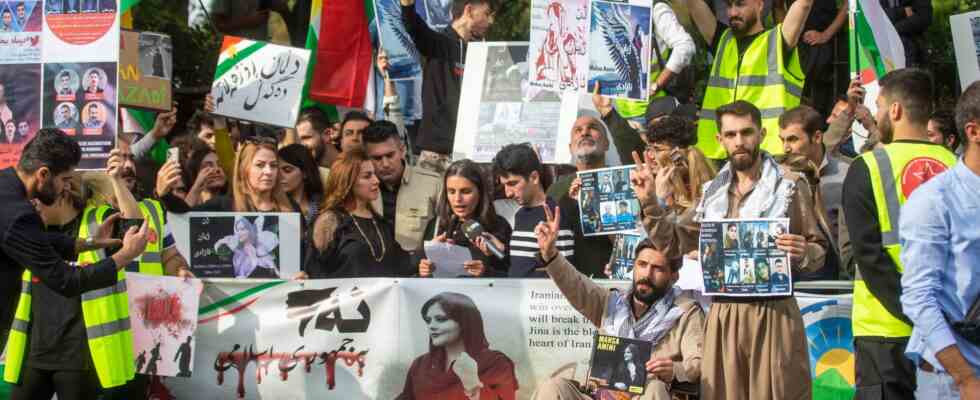Status: 22.09.2022 21:54
After the death of a 22-year-old in police custody, the anti-government protests in Iran have not stopped – so far 17 people have died. Now the head of justice ordered harshness against “rioters”.
Iran’s head of justice has ordered security forces to crack down on the nationwide protests. Gholam-Hussein Mohseni-Edschehi instructed the judiciary and police in all parts of the country not to compromise when dealing with “professional rioters” and leaders of the unrest, the state news agency IRNA reported. According to the head of justice, this should guarantee the security of the citizens. For days, experts have feared that the Iranian authorities will crack down on the street demonstrations.
At least 17 dead
The protests were triggered by the death of 22-year-old Iranian Mahsa Amini. She was arrested by the Morality Police just over a week ago for violating the strict Islamic dress code. What exactly happened to Amini after her arrest is unclear. Anyway, she went into a coma and died in a hospital on Friday. Critics accuse the morality police of using violence. The police deny the allegations. Since then, thousands of people have been demonstrating across the country against the government’s repressive course.
At least 17 people have been killed in the protests in dozens of cities so far. Both security forces and demonstrators were among the victims, state television reported. Live ammunition shots are reported in videos from Iran that could not be verified.
Mullahs shut down the internet
The regime in Tehran reacted with massive internet and media blockades. The mobile Internet is massively restricted and mobile networks in particular are largely switched off. Instagram, one of the last free social networks, was also blocked. Some high-reach Iranian news portals that had reported on the protests could no longer be reached abroad. The demonstrations were rarely discussed on the websites of the state media.
Prominent Iranians in exile have since shown their solidarity with the protest movement. In Iran itself, too, voices were raised that opposed the government’s course in an unusually sharp manner. Soccer star Ali Karimi, for example, sided with the demonstrators. The ex-professional received encouragement from many Iranians. “Don’t be afraid of strong women. Maybe the day will come when they will be your only army,” wrote the ex-professional, who also played in the Bundesliga in the past, on Twitter.
US sanctions morality police
The US government imposed sanctions on morality police and senior security officials. According to the Ministry of Finance, high-ranking executives from various security organizations in the country are also affected – such as the head of the moral police. As a result of the sanctions, any possessions of those affected in the USA will be frozen, and US citizens will be prohibited from doing business with them.
And another incident is causing trouble in the USA: Christiane Amanpour, longtime correspondent for the US broadcaster CNN, reported that she had planned an interview with Iran’s President Ebrahim Raisi on the sidelines of the UN General Assembly in New York. However, Raisi did not appear at the agreed time. Instead, one of Raisi’s associates came 40 minutes later and said the President was suggesting that she (Amanpour) wear a headscarf. She refused, Amanpour tweeted. No Iranian president has previously required wearing a headscarf when interviewed outside of Iran.

